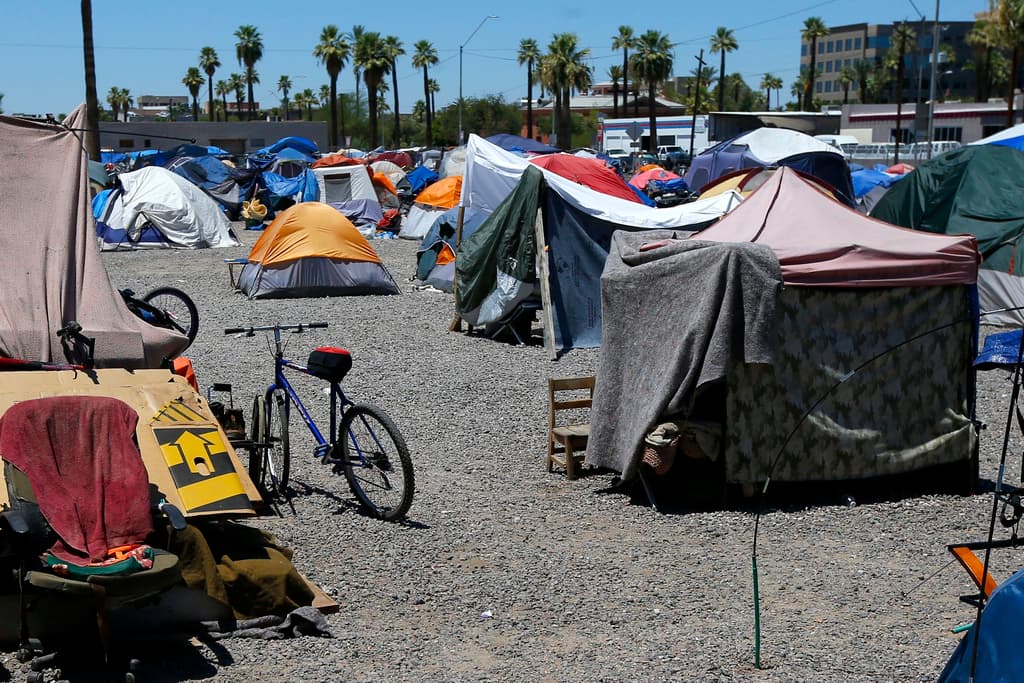Supreme Court Is Pressed To Allow Clearing of Homeless Encampments Blighting Western Cities
If the court weighs in, it will have major ramifications for the estimated 582,000 homeless people across America, many of whom have been allowed to live long-term in tents on city land.

A bipartisan coalition of state governments, liberal cities, and free-market groups across the country is petitioning the Supreme Court to strike down court rulings that have bedeviled cities’ efforts to clear out dangerous and unsanitary homeless encampments. Should the court act in the coalition’s favor, cities could finally take action against the camps marked by filth, open-air drug use, and inflated crime.
Please check your email.
A verification code has been sent to
Didn't get a code? Click to resend.
To continue reading, please select:
Enter your email to read for FREE
Get 1 FREE article
Join the Sun for a PENNY A DAY
$0.01/day for 60 days
Cancel anytime
100% ad free experience
Unlimited article and commenting access
Full annual dues ($120) billed after 60 days

